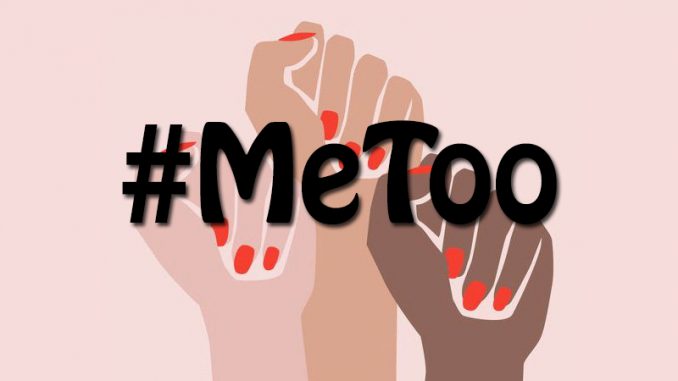
The #MeToo movement has taken the nation by storm. Since October, more than 13.7 million tweets and Facebook posts have been made using the hashtag.
And on Dec. 6, this wave of awareness over sexual harassment and assault earned Time magazine’s 2017 Person of The Year recognition.
The movement started after the allegations against media mogul Harvey Weinstein came to light. Actress Alyssa Milano originally tweeted #metoo, but its origins can be traced back to Tarana Burke, who as a youth camp director heard a story of sexual assault from one of her campers and recognized her own experiences in the girl’s haunting tale.
Since Milano originally tweeted with the hashtag on Oct. 15, people have been openly sharing their stories of sexual assault and support on a global scale, trending in 85 different countries.
Many prominent people such as Today Show host Matt Lauer, White House reporter for The New York Times Glenn Thrush, and political analyst Mark Halperin have all been either fired or suspended because of allegations of sexual misconduct.
Here at Indian Trail High School & Academy, some students see #metoo as inevitable.
“I think it is a necessary step for our society to progress,” said Mac Maedke, an Indian Trail Medical Sciences Academy senior.
“Sexual harassment seems to have been overlooked, simply because people don’t want to think about it. This movement brings sexual harassment into the spotlight and attacks the problem, ensuring that everyone knows that harassment is more prevalent than we like to believe,” said Maedke.
Others disagree wholeheartedly.
“All these women are just trying to ruin careers and it’s disgusting!! They wait 10, 20, 30 years to say anything and have some horse**** reason as to why they didn’t. S**** trying to make a $$ #cnn #metoo #FoxNews,” tweeted Kingslayer1031.
However, in 2011, the United States government released a report stating that nearly 1 in 5 women had experienced sexual assault. The National Women’s Law Center reported on April 19, 2017, that nearly 1 in 3 teenage girls have experienced sexual assault or sexual harassment. Sexual harassment and assault are still prominent problems in women’s lives.
“The sad truth is that there will always be bad people who may prey on anyone,” said Maedke.
While sexual assault may continue to be an issue, many hope that the Me Too movement draws enough attention to help make it much harder for perpetrators to get away with sexual harassment or assault.
“People are definitely starting to talk about [sexual assault and harassment] though, so hopefully it just keeps spreading,” said Communications Academy senior Maya Hysaw.
Congress has also taken notice of the Me Too movement, and on Nov. 15, 2017, the Me Too Congress Act was introduced. This act makes it much easier for victims in congress to file complaints, eliminating 30-day therapy and meditation requirements. The act would require lawmakers to pay out of pocket for any settled complaint and create an online system to file complaints, among other things.
“These issues are everywhere across the world. There will always be bad people, and with bad people come difficult issues,” said Maedke. “The best way to stop bad people is to ensure good people know about them and their intentions.”
“With enough good, we can shine out the bad,” he said.

